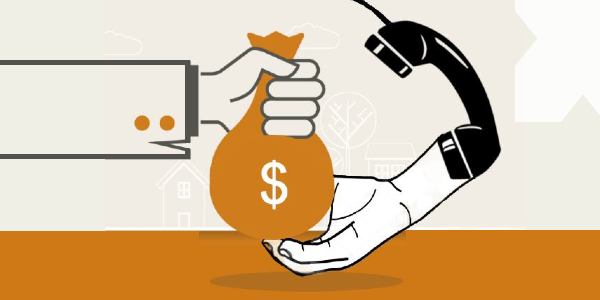Phone calls from our near and dear ones are always welcomed by us, but not from debt collection agencies. Ironically speaking, if “being in debt” is a cake, calls from debt collectors serve as icing on it. Well, if you ever receive a call from any agency identifying them as a debt collection agency, beware! While you may owe some debt to your creditors, not all debt collection calls are real. Fake debt collection agencies may pose as government agencies (FBI, CIA) or national banks in order to gather personal information. They may also use a variety of business names or even the name of the attorney general to swindle the consumers. Fraudulent collection agencies usually call and threaten that you will be arrested and thrown in jail unless you make the payments immediately.
Fake debt scammers generally assume that their calls will be taken by individuals who may be carrying some debt and may be susceptible to intimidation. Many times, the amount involved is relatively small, so people tend to pay the bill and get over it. So, be careful before you make payments to any collection agency. If you have taken a payday loan and getting calls from a collection agency, never reveal your social security number and other personal information.
Know your FDCPA rights
The FDCPA or Fair Debt Collection Practices Act has certain rules which a debt collector must follow while collecting debt from the consumers. Following are a few things that an authorized debt collector is not supposed to do:
- Ask you to pay more than the owed amount
- Call you repeatedly
- Use obscene or abusive language while talking to you
- Call you before 8.00 am or after 9.00 pm
- Threaten violence against you if you do not pay the debt immediately
- Threaten to sue you, garnish wages or cause job loss when the collector does not intend to take the action
Few things that you can do to protect yourself from fake collection agencies
According to the Attorney General’s Consumer Protection Section, here is what you can do:
- Find out the name, address and phone number of the company calling you.
- Find out the name of the company you owe money to, and ask them if they have authorized the collection agency to collect the debt for them.
- If a collection agency calls you repeatedly or threatens you in any way, just disconnect the call and file a complaint with the Attorney General’s office.
- If you dispute a debt that a collection agency demands from you, they must provide some proof of your debt, before contacting you again.
- Send a letter to the collection agency asking them to stop calling you at your work or home. Once they receive your letter, they are restricted from calling you again.
- If a collection agency denies providing you with a record of your debt, hang up and file a complaint with the Attorney General’s office.
- When you are dealing with debt collectors, always keep copies of all your correspondence, including any payments.








